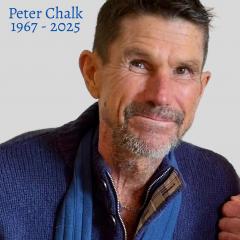
Update from August 2021 from Rodrigo Flores Paredes, Sociologist, University of Concepción, Chile who completed his Master of Governance and Public Policy, University of Queensland in 2014.
“I am teaching in a couple of universities, in the fields of Social Theories, Research Methodologies and Community Intervention, and I also work in the municipality of the Lota commune. This is a commune with high heritage value, because it was the main coal extraction area in Chile, with the biggest coal mines in the country.
There are many constructions and buildings that come from the time of the greatest economic boom in the area (19th and 20th century), in addition to a rich culture around coal. The coal mines closed in 1997, because they were not economically viable, and since then the commune has remained with high levels of poverty and social vulnerability.
The program in which I work today (whose name in Spanish is Programa de Revitalización de Barrios e Infraestructura Patrimonial Emblemática), is financed by the State of Chile and by the Inter-American Development Bank (IDB), and seeks to rescue the cultural heritage of the commune, both tangible and intangible, to contribute to its cultural and economical development. Within the Neighborhood Revitalization program team that settled in the commune, I am in charge of a specific area, which is Governance and Citizen Participation. My job is to generate, promote and develop initiatives that allow to rescue and strengthen the heritage and local identity to take advantage of the potential of the commune and achieve a better quality of life for its inhabitants. To achieve this, I work collaboratively with the community and social organizations to design projects and management plans, which can connect with other components of the program, such as the areas of Infrastructure and Local Economic Development.
Regarding my research topic, today in Chile, after many protests, with a social outbreak in 2019, we are in the process of creating a new political constitution, and the issue of decentralization has been installed as one of the axes of the discussion, since it is considered very necessary to deepen in the redistribution of power. This topic has developed in diverse and unequal ways in Latin America, and that is why I want to research the impact of decentralization processes on municipal governance in Ecuador and Chile, from 2017 until today (although I am still working on my topic).”



